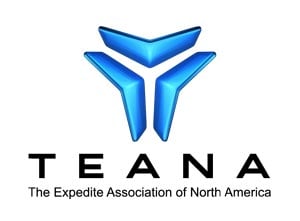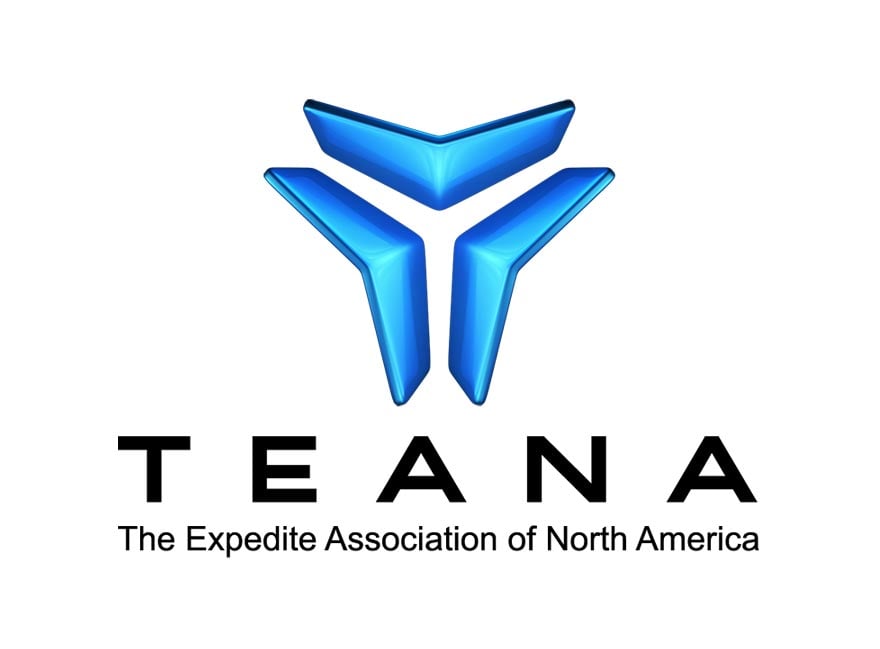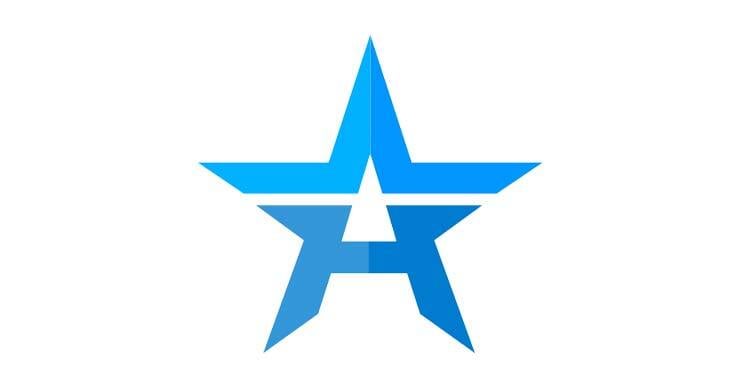
Contents
FMCSA has extended its emergency declaration regarding COVID-19 through May 31. For the latest version and other guidance related to COVID-19 is available at www.fmcsa.dot.gov/COVID-19.
Regulation and Enforcement
- DOL proposes to withdraw rule on worker classification
- DOT rescinds Trump administration’s changes on rulemakings, guidance
- CVSA to hold enforcement events in May and July
- Bus operator seeks exemption from full clearinghouse query in hiring
- Armored car operation seeks exemption to weld front doors shut
- FMCSA grants windshield exemption to Bendix
Legislation
- West Virginia law allows clear path to independent contractor status
- Biden infrastructure plan envisions passage of the PRO Act
- Bills reintroduced to allow 18-year-old interstate drivers under specific conditions
- House and Senate bills would require underride protection rulemaking
- House bill would authorize $755 million to expand commercial truck parking
- Sen. Fischer reintroduces bill to loosen restrictions on agricultural hauling
- Senate bill would establish federal working group on electric vehicles
Advocacy and Comment
Regulation and Enforcement
DOL proposes to withdraw rule on worker classification
Comments are due April 12 on a notice of proposed rulemaking (NPRM) to withdraw a Trump administration rule regarding independent contractor status. The U.S. Department of Labor’s Wage and Hour Division (WHD) had already delayed the effectiveness of the rule until May 7 while it reviewed the regulation. The Trump administration regulation, which was issued in January and originally scheduled to take effect in March, adopted a new “economic reality” test to determine whether a worker is an employee or an independent contractor under the Fair Labor Standards Act (FSLA).
In the NPRM, WHD said that courts and the department have not used the new economic reality test and that neither the text of the FLSA nor longstanding case law support the test. WHD said the rule would narrow or minimize other factors that courts have traditionally considered, making the economic test less likely to establish that a worker is an employee under the FLSA. For the NPRM, visit https://www.federalregister.gov/d/2021-05256.
DOT rescinds Trump administration’s changes on rulemakings, guidance
The U.S. Department of Transportation (DOT) issued a final rule that rescinds policies and procedures related to rulemaking, guidance, and enforcement that DOT had implemented in December 2019. The rule affects not only department-level proceedings but also those within its agencies, including the Federal Motor Carrier Safety Administration.
The 2019 changes largely wrote into DOT regulations (49 CFR part 5) some of the reforms that had been ordered by various executive orders issued by President Trump. Those included regulatory reform policies on regulatory budgeting, the “2-for-1” plan (repealing two rules for every one new rule), and the Regulatory Reform Task Force.
In its latest action, DOT said it was responding to two recently issued executive orders that (1) revoke several Trump administration executive orders relating to rulemaking, guidance, and regulatory enforcement (E.O. 13992) and (2) direct executive departments to review regulations that conflict with the objectives concerning protecting public and the environment (E.O. 13990). However, the new rule rescinds more than just provisions directly attributable to now-revoked executive orders. The department also has rescinded regulations in 49 CFR part 5 that:
- Solely apply to the department's internal operations “and thus need not be codified in the Code of Federal Regulations;”
- Are duplicative of existing procedures contained in internal departmental procedural directives; and
- Are derived from the Administrative Procedure Act and significant judicial decisions “and thus need not be adopted by regulation in order to be effective.” 49 CFR part 5, subpart D – Enforcement Procedures was rescinded in its entirety for that reason, DOT said.
DOT said removing these provisions “ensures that the Department is able to effectively and efficiently promulgate new Federal regulations and other actions to support the objectives stated in E.O. 13990.” However, the department said the regulations would continue to include provisions related to the public’s ability to interact with DOT on rulemaking matters and activities. For example, DOT retained procedures for the public to petition for rulemakings and exemptions. Although the new rule rescinds language that explicitly provided for retrospective reviews and guidance document petitions, “the Department will nevertheless accept and process these types of petitions,” it said.
DOT issued the new rule without a notice-and-comment process on the grounds that Administrative Procedure Act requirements do not apply to an action that is a rule of agency organization, procedure, or practice. The same was true for the December 2019 rule that this rule largely overturns.
For the Federal Register notice of the final rule, visit https://www.federalregister.gov/d/2021-06416. For DOT’s December 2019 rule, visit https://www.federalregister.gov/d/2019-26672.
CVSA to hold enforcement events in May and July
The Commercial Vehicle Safety Alliance has scheduled its annual Operation Safe Driver Week for July 11-17 with an emphasis on speeding. During Operation Safe Driver Week, law enforcement personnel will be on the lookout for commercial motor vehicle drivers and passenger vehicle drivers engaging in risky driving behaviors in or around a commercial motor vehicle (CMV).
CVSA previously announced that its annual International Roadcheck enhanced inspection event would be held May 4-6. The emphasis of this year’s Roadcheck will be lighting and hours of service. Roadcheck traditionally has been held in early June, but CVSA moved it up a month because its research has shown that weather tends to be better in early May than in early June.
Bus operator seeks exemption from full clearinghouse query in hiring
FMCSA is requesting comments by April 15 on an application by FirstGroup plc for an exemption to allow it to use a limited pre-employment query of the drug and alcohol clearinghouse as a screen when hiring school bus and transit drivers rather than having to conduct a full pre-employment query as required under the regulations. FirstGroup says the requirement for a full query is hindering its ability to hire at the speed and level needed to keep pace with the demands of the contracted school and transit transportation industry and is resulting in hundreds of thousands of dollars of increased costs.
Under the requested exemption, in lieu of a full query, FirstGroup would conduct a limited pre-employment query of the clearinghouse. If the limited query indicated that information about the driver existed, the company would then conduct a full query of the clearinghouse with the driver-applicant providing consent in the clearinghouse as required. FirstGroup also would conduct a second limited query within 30 to 35 days of the initial limited query and conduct multiple limited queries on all its CDL drivers each year thereafter. For the Federal Register notice, visit https://www.federalregister.gov/d/2021-05328.
Armored car operation seeks exemption to weld front doors shut
FMCSA is inviting comments by May 7 on an application from Loomis Armored US, LLC for an exemption to allow the driver and passenger doors of the cab of its specialized armored vehicles to be welded shut. Loomis believes that welding shut the cab doors and adding two new doors behind the cab will maintain safety while allowing secure armored car operations with reduced staff. For the Federal Register notice, visit https://www.federalregister.gov/d/2021-07102.
FMCSA grants windshield exemption to Bendix
FMCSA granted an exemption to Bendix Commercial Vehicle Systems to allow its advanced vehicle safety systems, which are equipped with cameras, to be mounted lower in the windshield on CMVs than is currently permitted. For the Federal Register notice, visit https://www.federalregister.gov/d/2021-06982.
Legislation
West Virginia law allows clear path to independent contractor status
LegislationWest Virginia Gov. Jim Justice last month signed legislation (Senate Bill 272) intended to provide a clear framework for establishing when a worker is an independent contractor or employee. The findings section of the new law notes that legal standards are not only often subjective but also often vary depending on the particular law at issue. The goal of the legislation is to provide certainty and clarity for all involved.
Under the new law, a person is an independent contractor if there is a written contract stating such and the person satisfies any three of nine specified conditions that indicate an independent contractor relationship. Of particular interest in the trucking context is a provision that explicitly allows firms using the services of an independent contractor to specify safety-related devices, procedures, or training. For the text of the West Virginia law, visit http://bit.ly/WVA-IC.
Biden infrastructure plan envisions passage of the PRO Act
The Biden administration’s proposed American Jobs Plan – a $2.3 trillion broadly defined infrastructure package – apparently contemplates enactment of various pro-labor measures, including the Protecting the Right to Organize Act, or PRO Act. An endorsement of the PRO Act is contained in a White House fact sheet on the American Jobs Plan, specifically in a section that proposes measures aimed at promoting union organization and collective bargaining.
The U.S. House of Representatives has already passed the PRO Act on a party line vote. Among a host of pro-labor provisions, the bill (H.R. 842) includes language that would mandate a federal ABC test for worker classification similar to that in California’s AB 5. The bill also would explicitly declare misclassification of workers a violation of the National Labor Relations Act.
Although broadly billed as an infrastructure plan, the American Jobs Plan allocates relatively little money for highways – just 5% of the total cost. Most of the funding goes into construction and retrofitting of buildings and into investments in Biden administration priorities, such as promoting adoption of electric vehicles. Almost as controversial as the labor provisions are the financing measures, including an increase in the corporate tax rate to 28% and the sunset of various tax benefits for companies that operate overseas. The bill also would eliminate tax preferences held by the petroleum industry. To view the fact sheet on the American Jobs Plan, click on the “Learn More” button at https://www.whitehouse.gov/american-jobs-plan.
Bills reintroduced to allow 18-year-old interstate drivers under specific conditions
Legislation (S. 659, H.R. 1745) that would establish an apprenticeship program allowing for interstate drivers aged 18 to 20 was reintroduced in both the House and Senate last month. The Developing Responsible Individuals for a Vibrant Economy Act, or DRIVE Safe Act, would require separate probationary periods of 120 hours and 280 hours, each with specific performance benchmarks. A driver could not transport hazardous materials until after completing the 120-hour probationary period hauling non-hazmat freight.
The legislation would allow 18- to 20-year-olds to drive interstate only if the CMV is governed at 65 mph and equipped with automatic manual or automatic transmissions; active braking collision mitigation systems; and Forward-facing video event capture. The legislation has been introduced in the past two Congresses but failed to advance. For more information, visit https://www.congress.gov/bill/117th-congress/senate-bill/659 and https://www.congress.gov/bill/117th-congress/house-bill/1745.
House and Senate bills would require underride protection rulemaking
Sen. Kirsten Gillibrand (D-New York) and Rep. Steve Cohen (D-Tennessee) reintroduced legislation (S. 605, H.R. 1622) that would mandate regulations to require installation and retrofit of rear, side, and front underride guards on all CMVs with gross vehicle weight ratings of more than 10,000 pounds. The bill also would specify performance standards for each type of underride guard as well as require rules on inspection, maintenance, and repair of the devices. Essentially the same bills were introduced in the past two Congresses. For more information, visit and https://www.congress.gov/bill/117th-congress/senate-bill/605 and https://www.congress.gov/bill/117th-congress/senate-bill/659.
House bill would authorize $755 million to expand commercial truck parking
Reps. Mike Bost (R-Illinois) and Angie Craig (D-Minnesota) have reintroduced legislation (H.R. 2187) that would establish a set-aside source of funding to expand more commercial truck parking throughout the U.S. The bill would authorize $755 million total in annual increments. The funds could be used at a variety of locations, including construction of public rest areas and commercial vehicle parking facilities and parking capacity next to commercial truck stops, weigh stations, and public and private freight facilities. For more information, visit https://www.congress.gov/bill/117th-congress/house-bill/2187.
Sen. Fischer reintroduces bill to loosen restrictions on agricultural hauling
Sen. Deb Fischer (R-Nebraska), the ranking Republican on the Senate subcommittee that oversees trucking regulations, has introduced legislation (S. 792) to modify certain agricultural exemptions for HOS requirements. The bill would eliminate the limitation that applies ag and livestock HOS exemptions only during state-designated planting and harvesting seasons. The bill also would amend and clarify the definition of “agricultural commodities” and authorize a 150 air-mile exemption from HOS requirements on the destination side of a haul for ag and livestock haulers. For details of S. 792, visit https://www.congress.gov/bill/117th-congress/senate-bill/792.
Senate bill would establish federal working group on electric vehicles
Sen. Catherine Cortez Masto (D-Nevada) introduced legislation (S. 508) that would establish a federal working group to make recommendations on the development, adoption, and integration of light and heavy-duty electric vehicles into the transportation and energy systems of the U.S. The working group would include federal and private sector members, including at least one representative of the trucking industry. For more information, visit https://www.congress.gov/bill/117th-congress/senate-bill/508.
Advocacy and Comment
Easy Come, Easy Go
Advocacy and CommentLast year, the Department of Transportation issued internal rules providing needed clarity and due process applicable to FMCSA investigations, safety ratings and civil forfeitures. The Agency’s decisions got little publicity but were reviewed with approval approximately a year later in a transportation lawyers’ journal.
Unfortunately, the ink was not dry on the article before incoming Secretary Pete Buttigieg issued a 19-page document largely countermanding the previous findings and eliminating administrative restraints on regulatory abuses the earlier rules were intended to address.
The formal rulemaking process, which was not followed, includes an opportunity for notice and comment, the development of a record for appeal, and the provision for due consideration concerning the effect of the regulations on small carriers. Unfortunately, neither the Trump Administration’s findings nor Buttigieg’s reversal were based on any opportunity for notice or comment. Both must be viewed as “Rules du Jour” (rules of the day).
All too frequently, administrative agencies have grown accustomed to publishing guidance documents masquerading as rules which themselves offer no due process as the FMCSA’s touting of SMS methodology has poignantly demonstrated.
The formal rulemaking process, while cumbersome, is an important procedural protection against unvetted material changes in regulations. The first 100 days of the new administration indicate that there may be many new regulatory and legislative developments to be covered in the coming months.
Owner Operator Update
As previously noted, the PRO Act passed by the House would, along with other pro-labor provisions, eliminate independent contractor treatment of owner-operators. The chance of passage in the Senate may be increased by the parliamentarians’ decision that revenue bills are not subject to a 60-vote filibuster. The FAST Act has been tied to the infrastructure funding bill, which could thus result in a greater chance of passage.
Our Process lorem ipsum dolor sit amet, consectetur adipiscing elit. Nunc vulputate libero et velit interdum, ac aliquet odio mattis.
Value prop lorem ipsum
Ut posuere hendrerit nisl metus neque. Facilisis quis adipiscing a molestie. Tempor turpis tincidunt nulla diam in. Nec etiam ut neque placerat mauris nulla. Semper hendrerit at urna orci in faucibus sit lacus. Tincidunt fermentum consequat.
SEE OTHER CITIES WE SERVICE IN THIS STATE
Value prop lorem ipsum
Ut posuere hendrerit nisl metus neque. Facilisis quis adipiscing a molestie. Tempor turpis tincidunt nulla diam in. Nec etiam ut neque placerat mauris nulla. Semper hendrerit at urna orci in faucibus sit lacus. Tincidunt fermentum consequat.
SEE OTHER CITIES WE SERVICE IN THIS STATE
Related Blog Posts

Regulatory and Legislative Update - March 2021
Contents FMCSA has extended its emergency declaration regarding COVID-19 through May 31. For the latest version and other guidance related to COVID-19 is available at www.fmcsa.dot.gov/COVID-19. Regulation and Enforcement DOL postpones effective date on independent contractor rule DOL withdraws opinions sleeper berth pay, independent contractor status SBA takes steps to improve PPP access for very small businesses FMCSA postpones effective date...

Regulatory and Legislative Update - August 2022
Contents FMCSA has extended its emergency declaration regarding COVID-19 through August 31, 2022. For the latest version and other guidance related to COVID-19 is available at www.fmcsa.dot.gov/COVID-19. Note that use of the declaration now requires monthly reporting by carriers. Courts Appeals court upholds the latest changes to HOS rules Appeals court overturns ruling for Schneider in classification case Regulation and Enforcement Registration...

Regulatory and Legislative Update - December 2021
Contents FMCSA has extended its emergency declaration regarding COVID-19 through February 28. For the latest version and other guidance related to COVID-19 is available at www.fmcsa.dot.gov/COVID-19. Note that use of the declaration now requires monthly reporting by carriers. Legislation House passes ocean shipping reform bill House passes Build Back Better Act House bill would federalize major crash lawsuits, criminalize staging of crashes...

Regulatory and Legislative Update - March 2022
Contents FMCSA has extended its emergency declaration regarding COVID-19 through February 28. For the latest version and other guidance related to COVID-19 is available at www.fmcsa.dot.gov/COVID-19. Note that use of the declaration now requires monthly reporting by carriers. Regulation and Enforcement FMCSA removes x-ray exam from definition of ‘medical treatment’ FMCSA drops mandate that drivers disclose traffic violations to employers FMCSA...

Regulatory and Legislative Update - August 2023
Contents Regulation and Enforcement FMCSA to revisit state regulation of drivers’ rest breaks Three devices removed from list of registered ELDs FMCSA updates technical guidance on ELDs Brian Stansbury appointed FMCSA’s chief counsel FMCSA rejects driver’s requested exemption from multiple HOS requirements Legislation Senate DOT funding bill would block younger driver program mandates Senate bill would establish a carrier selection standard...

Regulatory and Legislative Update - January 2023
Contents Regulation and Enforcement FMCSA proposes changes in broker and forwarder requirements Exemption rejected for including hair testing results into drug clearinghouse FMCSA implements 10-year refresher training and certification for medical examiners DOT modal agencies adjust civil penalties for inflation FMCSA to begin work on vehicle crash causation study Stevens Transport receives CDL-related exemption FMCSA grants two driver training...

Regulatory and Legislative Update - January 2025
Contents Regulation and Enforcement FMCSA expands crash preventability review criteria FMCSA to highlight upcoming SMS changes in January 16 webinar Compliance date pushed back for certain provisions of broker/forwarder rule Trump labor pick, port dispute stance raise questions about labor policy FMCSA proposes to waive hazmat endorsements for certain limited operations Company denied exemption for limited interstate driving by younger drivers...

Regulatory and Legislative Update - February 2022
Contents FMCSA has extended its emergency declaration regarding COVID-19 through February 28. For the latest version and other guidance related to COVID-19 is available at www.fmcsa.dot.gov/COVID-19. Note that use of the declaration now requires monthly reporting by carriers. Regulation and Enforcement Safety fitness procedures apparently are next on FMCSA’s regulatory agenda FMCSA adopts new vision standards for commercial drivers FMCSA...

Regulatory and Legislative Update - October 2021
Contents Regulation and Enforcement DOT seeks input on ‘supply chain resilience’ in freight and logistics FMCSA rule to link clearinghouse data to CDL Reporting requirement for FMCSA COVID declaration kicked in October 1 FMCSA renews steel company’s exemptions from HOS and securement rules Oak Harbor Freight Lines seeks exemption on driver training instructors Keep Truckin seeks windshield exemption Legislation Infrastructure bill remains in...

Regulatory and Legislative Update - June 2020
Contents Note: FMCSA’s emergency declaration related to COVID-19 currently runs through July 14, but the latest extension curtails the coverage of the relief. For latest version, visit https://www.fmcsa.dot.gov/COVID-19. Legislation Congress extends PPP through August 8 House passes infrastructure bill with major motor carrier provisions House bill would establish carrier selection standard House bill would expand HOS exemption for agriculture...

Regulatory and Legislative Update - July 2020
Contents Note: FMCSA’s emergency declaration related to COVID-19 currently runs through July 14, but the latest extension curtails the coverage of the relief. For latest version, visit https://www.fmcsa.dot.gov/COVID-19. Legislation Congress extends PPP through August 8 House passes infrastructure bill with major motor carrier provisions House bill would establish carrier selection standard House bill would expand HOS exemption for agriculture...

Regulatory and Legislative Update - August 2021
Contents FMCSA has extended its emergency declaration regarding COVID-19 through August 31. For the latest version and other guidance related to COVID-19 is available at www.fmcsa.dot.gov/COVID-19. Legislation Senate passes bipartisan infrastructure bill with motor carrier provisions House passes fiscal 2022 funding for DOT Senate bill would repeal excise tax on trucks and trailers Courts California Trucking Association asks Supreme Court to...
WHAT IS HOT SHOT TRUCKING? AKA HOTSHOT TRUCKING
Modern business is all about strict timelines. Whether your field is manufacturing, extraction, retail, or research and development, your operations are bound to rely on activities that operate in tandem. The most minor of supply shortages can throw these activities off, potentially costing you thousands of dollars just for a few hours' delay. Success thus hinges on your ability to right the ship as quickly as possible after a supply shortage arises.
Industries We Serve
Modern day hot shot trucking provides the speed and exclusivity you need to meet the most demanding and time-sensitive shipping requirements. We use every resource, avenue, and channel available to ship your freight by ground or air. Designed specifically to address supply and distribution problems that arise without warning, hotshot trucking tactics involve coordinating a network of carriers in a variety of locations. By calling on the vehicles closest to your supply or distribution points, hotshot brokers can fill any sudden gaps in your supply network almost as soon as they happen. This minimizes the disruption to your business and allows you to quickly return to ordinary operations, weathering the storm without skipping a beat.
Automotive
The automotive supply chain already has significant challenges. Don’t let malfunctioning equipment stop the production line. Step on the gas with HotShotTrucking.com’s suite of services that will get you back in the fast lane. With HotShotTrucking.com, companies are devising shipping strategies to swiftly deliver critical parts and equipment — whether it's ground expedite service with sprinter vans, box trucks and 53-foot tractor trailers or air freight and air cargo.
Aviation & Aerospace
Every moment a commercial airliner sits on the ground, it costs an airline money. Expedited freight services by HotShotTrucking.com can get you back in the air with prompt delivery of parts and equipment throughout North America. We are equipped with the expertise to navigate the complexities of shipping jet engines and other types of loads, and our network of hot shot drivers has extensive experience transporting aviation assets.
Construction
One shipping delay can snowball and cause delays throughout your entire project. You need an experienced 3PL provider who understands the construction industry and has the logistical reach to deliver your freight on time, anywhere. That 3PL partner is HotShotTrucking.com. Whether in the air or on the ground via truck and trailer, we can connect companies to expedited freight services for the prompt delivery of parts and equipment throughout North America.
Mining & Metals
From cranes to chemicals to excavators to conveyor belts, HotShotTrucking.com has the experience and industry know-how required for shipping sensitive, oversized, and hazardous equipment. Third-party hot shot trucking and logistics providers such as HotShotTrucking.com specialize in devising and implementing innovative shipping solutions, ensuring mines can swiftly return to operation. We’ll pick up your shipment, deliver it to the airport and receive it at the other end – providing hand-carried service as necessary or required.
Manufacturing
Every moment a manufacturing facility or factory sits idle costs a company money because of the high costs involved. With many manufacturers building to only just-in-time production rates, any disruption threatens parts and vehicle inventories. This is where the speed and expertise of freight services from HotShotTrucking.com can make a difference throughout the entire manufacturing supply chain. We do all the logistical legwork to find the optimal solution for your job, whether it's an exclusive air charter or expedited ground shipping.
Telecommunications
From servers to cell towers, information, voice, and data must flow to keep businesses, production, and the public online and connected. When equipment goes dark, depend on HotShotTrucking.com to get your systems flashing green again. This is where the speed and experience of trucking and freight services from HotShotTrucking.com can help. Our hot shot truck network excels at the prompt delivery of parts and equipment throughout North America.
Oil & Gas
The oil and gas industry faces challenging conditions in offshore and onshore oil rigs, often in remote locations with limited infrastructure. Don’t let oil pumps or pipelines sit idle waiting for equipment. By having the right plans, parts, people, and logistics partner like HotShotTrucking.com, you can effectively mitigate plant or pump downtime, unscheduled disruptions, and equipment failures.
Cost of Urgent Shipping
Which of our specialized shipping services best fits your needs?
Blog and Resource Center
How AirFreight.com Solved a PGA Tour Shipping Emergency
Learn how AirFreight.com located a lost shipment and helped save the PGA Golf Tour.
How AirFreight.com Saved The Farm By Solving A Major Shipping Delay
Learn how we saved a Montana-based artisanal farm thousands of dollars by expediting a shipment of perishable goods.
Expedited Shipping Vendor Comparison
We’ve done the research for you. This vendor comparison sheet breaks down how AirFreight.com stacks up against the competition.

talk to an expeditor now
Get a Quote in Minutes for Your Time-Critical Freight Needs
GET A QUOTE
